
12 minute read
Towards free trade
A continent-wide free trade agreement promises to unlock enormous value. Towards free trade
By John Young
Advertisement
The African Continental Free Trade Area (AfCFTA) will come into effect in July 2020. A single market of 1.3-billion people is expected to grow to 2.5-billion by 2050.
The AfCFTA aims to accelerate the growth of intra-African trade and to use trade as an engine of growth and sustainable development, which will strengthen Africa’s voice in global trade negotiations. The AfCFTA head office will be in Ghana.
Currently, trade between African nations is between 15% and 18% of total trade, as against 69% in Europe and 59% in Asia (United Nations Conference on Trade and Development (UNCTAD) and Brookings Institution). Tariffs on 90% of all goods are to be removed. The Boston Consulting Group notes that exports between African countries grew from $41-billion in 2007 to $65-billion by 2030 but this figure will rise exponentially if AfCFTA is implemented.
One prediction is that intra-regional trade could increase by 52.3% by 2022 (UN Economic Commission on Africa). The African Union (AU) believes trade will increase by 60%.
Just four countries currently account for 41.7% of intra-African trade, South Africa, Namibia, Nigeria and Zambia, according to the Export Credit Insurance Corporation of South Africa (ECIC). The ECIC has invested in the African Export Import Bank in an effort to boost intra-continental trade to $250-billion in 2021. The South Africa-Africa Trade and Investment Promotion Programme has the same goal.
The passing of the African Growth and Opportunity Act (AGOA) in 2000 was a boon for 39 Sub-Saharan African countries because 6 500 products could be sold duty-free in the United States of America. The bill will expire in 2025 so it’s timely that Africa’s leaders are looking to stimulate growth in new ways. In the current political climate, it is unlikely that AGOA will be renewed. President Trump has declared himself strongly opposed to multi-lateral agreements. The AU will lobby for a continent-wide agreement, but the US is likely to seek bilateral deals.
Trading with the world
The United States is no longer number one when it comes to trading with Sub-Saharan Africa. China is first (about $150-billion in 2018), then the European Union (EU) with the US in third place ($41.2-billion).
The Overseas Private Investment Corporation (OPIC), the US government’s development finance institution, has committed tens of millions of dollars to development projects in Africa, including the Connect Africa initiative.
The European Union Commission pledged to support the AfCTA with a €40-billion package that would attract investment and create jobs. The Africa-European Alliance for Jobs and Growth programme is intended to run from 2021 to 2027.
China’s multinational Belt and Road initiative includes a $1-billion African infrastructure fund and in 2018 aid to the value of $60-billion was delivered to the continent. The total value of Chinese investments and construction in Africa amounts to close to nearly $2-trillion since 2005 (American Enterprise Institute). McKinsey believes there are 10 000 Chinese businesses active in Africa.
All of this illustrates the importance of Africa to the world’s leading trading nations: it would suggest that a “race for Africa” is underway.
History and RECs
The roots of the AfCFTA can be traced back to the 1980 Lagos Plan of Action and a plan in 1991 to launch the African Economic Community. Neither of these were implemented but the goal remained alive.
The Southern African Development Community (SADC) was established in 1992 and the SADC Free Trade Area (FTA) came into being in 2008. The FTA covers 13 of the region’s 15 countries (Angola and the DRC have not signed) but only five countries are members of the Southern African Customs Union (SACU), Botswana, Eswatini, Lesotho, Namibia and South Africa. The SACU was formed in 1910.
Some of Africa’s Regional Economic Communities (RECs) have gone some way to achieving integration. Larger countries within an individual REC have tended to become a centre for trading, using the relationships they have with fellow members. Kamal Nasrollah, Partner and Head of the law firm Baker McKenzie in Casablanca, has studied this phenomenon and believes that the AfCFTA could use the example of these RECs. He cites Ivory Coast, Kenya, Senegal and South Africa and gives some detail on the Moroccan experience.
Writes Nasrollah, “Morocco is also an active trade hub within the Union du Maghreb Arab (UMA) trade agreement as well as the various trade agreements it has entered into with the US, the EU and the Francophone Africa free-trade zone (UEMOA).”
Challenges
Although the AfCFTA has been signed, a range of complicated and detailed negotiations lie ahead. Topics include tariffs, service sector concessions and the exact outlines of rules of origin in each jurisdiction.
Visa restrictions for business travellers and financial systems that are not compatible are other potential hurdles.
In 2016 the Common Electronic Biometric African Passport was launched, and the AU produced a protocol on free movement of persons. Egypt, Nigeria and South Africa are among the countries that have not signed the protocol. The UN Economic Commission for Africa (UNECA) found that progress has been slow with respect to mobility (African Regional Integration Index).
African visitors need a visa when visiting more than half of the nations on the continent and only Ghana and the Seychelles make visas available on arrival. According to The Economist, “it’s easier for Americans to travel around Africa than it is for Africans themselves” and the AU passport has so far only been used for heads of state and AU officials.
Concerns about security and the perception that “people from other African countries are
taking our jobs” will have to be addressed at national and local levels. South Africa has experienced outbreaks of xenophobia. Migration patterns will likely change if movement around the continent becomes easier.
A lot of work needs to be done to synchronise financial governance policies and to put better technology in place so that payments can take place across jurisdictions. Debt and deficit policies must chime.
The African Development Bank is supporting regional financial integration with programmes focussed on banking and financial standards and the African Peer Review Mechanism. Regional payment systems are being developed in each of COMESA, EAC, ECCAS, and ECOWAS. Other projects of the bank are the Africa Financial Markets Initiative, Making Finance Work for Africa and the Association of African Central Banks.
Possibly the biggest hurdle to seamless trading is poor infrastructure but a great many projects are underway in every corner of the continent.
Among the initiatives of the Programme for Infrastructure Development in Africa (PIDA) is the West Africa Hub Port and Rail Programme, a regional hub-port, rail-linkage and port-expansion plan. Kenya’s $68-million Naivasha Dry Port project supports this plan.
The Southern African Development Community (SADC) has been active with multimodal projects such as the development

corridors of Nacala, Maputo and Lobito (Zambia to Angola).
The Trans-Maghreb Highway in North Africa, the North-South Multimodal Corridor and the Central Corridor project are among other ambitious projects intended to provide inter-regional connectivity.
Who will benefit?
A recent research paper suggests that manufacturing will be one of the sectors to gain the most from the AfCFTA. According to “AfCFTA’s US$3-trillion Opportunity: Weighing Existing Barriers against Potential Economic Gains,” the dropping of tariffs between African countries will allow for the replacement of imported manufactured products, industrial machinery and transport equipment, which currently make up over 50% of Africa’s import basket.
The report, based on research done by international law firm Baker McKenzie and Oxford Economics, contrasts Africa’s export of raw material with this need to import manufactured goods. As a percentage of GDP, manufacturing averages 10% in Africa but the AfCFTA provides a chance for this to grow as markets open up. Improved infrastructure will further spur trade, and drive demand for more manufactured goods.
Countries which currently have strong manufacturing bases will benefit the most from the deal. Countries with less manufacturing like Algeria and Sudan will presumably move to diversify their economies and start building manufacturing capacity.
Another sector likely to benefit from the deal will be the services sector.
Countries with good infrastructure stand to benefit as efficient ports, airports and railway systems will be better equipped to deal with increased volumes of trade. ■
10 REASONS WHY YOU SHOULD INVEST IN SOUTH AFRICA
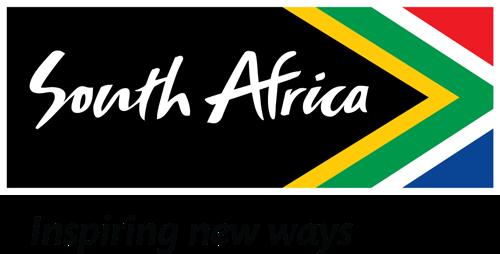
01.
HOT EMERGING MARKET Growing middle class, affluent consumer base, excellent returns on investment.

MOST DIVERSIFIED ECONOMY IN AFRICA 02. South Africa (SA) has the most industrialised economy in Africa. It is the region’s principal manufacturing hub and a leading services destination.
FAVOURABLE ACCESS TO GLOBAL MARKETS PROGRESSIVE CONSTITUTION & INDEPENDENT JUDICIARY ABUNDANT NATURAL RESOURCES LARGEST PRESENCE OF MULTINATIONALS ON THE AFRICAN CONTINENT
05. 04. 06. 03.
The African Continental Free Trade Area will boost intra-African trade and create a market of over one billion people and a combined gross domestic product (GDP) of USD2.2-trillion that will unlock industrial development. SA has several trade agreements in place as an export platform into global markets. SA has a progressive Constitution and an independent judiciary. The country has a mature and accessible legal system, providing certainty and respect for the rule of law. It is ranked number one in Africa for the protection of investments and minority investors. SA is endowed with an abundance of natural resources. It is the leading producer of platinum-group metals (PGMs) globally. Numerous listed mining companies operate in SA, which also has world-renowned underground mining expertise. SA is the location of choice of multinationals in Africa. Global corporates reap the benefits of doing business in SA, which has a supportive and growing ecosystem as a hub for innovation, technology and fintech.
ADVANCED FINANCIAL SERVICES & BANKING SECTOR 07. SA has a sophisticated banking sector with a major footprint in Africa. It is the continent’s financial hub, with the JSE being Africa’s largest stock exchange by market capitalisation.
08.
WORLD-CLASS INFRASTRUCTURE AND LOGISTICS
A massive governmental investment programme in infrastructure development has been under way for several years. SA has the largest air, ports and logistics networks in Africa, and is ranked number one in Africa in the World Bank’s Logistics Performance Index.
23 AFRICAN BUSINESS 2020 EXCELLENT QUALITY OF LIFE YOUNG, EAGER LABOUR FORCE 10. 09. SA offers a favourable cost of living, with a diversified cultural, cuisine and sports offering all year round and a world-renowned hospitality sector. SA has a number of world-class universities and colleges producing a skilled, talented and capable workforce. It boasts a diversified skills set, emerging talent, a large pool of prospective workers and government support for training and skills development.
AFRICA IS READY FOR BUSINESS
…ECIC TAKES EXPORT TRADE TO ANOTHER LEVEL

The Export Credit Insurance Corporation of South Africa (ECIC) is paving the way for South Africa (SA) to champion export driven industrialisation in Africa, while becoming a strong proponent of Intra Africa Trade.
Since its inception in 2001, the ECIC has grown in leaps and bounds from just a capital of R1.6bn to a balance sheet of R26bn. It is now the core agency in promoting the country’s export trade and is the key insurer on behalf of government for capital goods and services.
ECIC GIVES TWO TYPES OF COVERAGE.
1.
2. Political Risk Insurance (PRI)
protects the goods and services or project or plant against arbitrary political annexation of that plant. These are such occurrences as nationalisation, expropriation etc. In the same vein, it provides protection against arbitrary adverse tax that may be implemented post implementation of the project, as well as foreign currency inconvertibility.
Commercial risk insurance.
This may entail Protection of the SA exporter against commercial insolvency of the buyer,

ECIC CEO Kutoane Kutoane says the ECIC is geared to lead to export driven industrialisation in SA, something that is bound to impact positively on job creation and a healthy economy. “Since we are primarily a government agency that means our policies have to align with the intents and programmes of the National Development Plan (NDP). Some of these would be growing the economy and increasing employment and poverty alleviation.
“We consider ourselves to be on the cutting edge of SA’s development agenda by way of actively promoting and facilitation SA’s export trade.” He says exports will earn foreign exchange and increase the country’s reserves, eventually stimulating the economic growth trajectory of the country.


In the quest to achieve this, the ECIC is able to measure its impact.
The ECIC is committed to sustainable business through innovative solutions, operational and service excellence, business development and strategic partnerships. In enabling frontier markets to optimise production, the ECIC is effectively motivating a positive socio-economic impact.
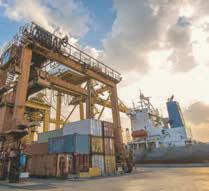

OUR MISSION
Our mission is to provide export credit and investment insurance solutions in support of South African capital goods and services by applying best practice risk management principles.
ECIC AD
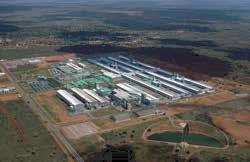
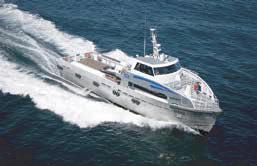




Since 2001 we have continued to provide commercial and political risk insurance for cross-border transactions, offering risk mitigation solutions to South African exporters of capital goods and investors . We have partnered with credible financial institutions and believe through partnerships economic growth can be achieved. As Export Credit Insurance Corporation of South Africa (ECIC) we are committed to supporting our South African businesses who export and invest in capital projects beyond our borders.
If youʼre planning on exporting to or investing in capital projects beyond our borders, contact ECIC for assistance
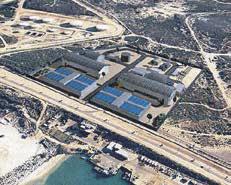


+27 12 471 3800 | info@ecic.co.za | www.ecic.co.za
ECIC is a registered financial service provider with the FSCA No. 30656





